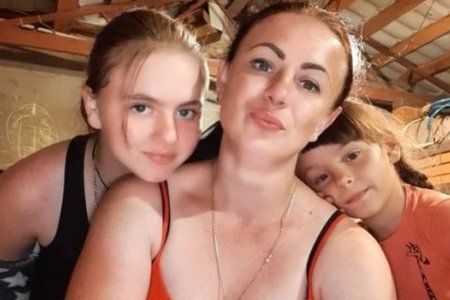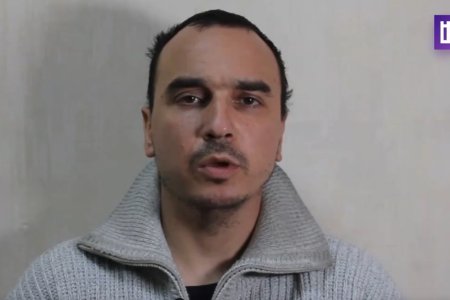
45-year-old Yulia Koveshnikova has been sentenced by a Russian occupation ‘court’ to 13 years’ imprisonment on ‘spying’ charges laid months after the Ukrainian was abducted from her native Melitopol and held incommunicado. It is typical of the lawlessness of all Russia’s enforced disappearances of Ukrainian civilians that even the ‘court’ where Kovieshnikova’s alleged ‘trial’ took place has not been named, let alone the individuals complicit in such a judicial travesty.
Yulia Koveshnikova (b. 02.09.1978) disappeared on 8 April 2023. Her daughter, Anastasia, has told the Centre for Journalist Investigations that she and her mother were in contact every day. On 8 April, she had told Anastasia that she was going out to get some shopping. She vanished, with the family having no information about her for many long months. They posted information and a photo of her on an Internet search website, but it was over seven months after her abduction, that Anastasia received calls from relatives of people held prisoner together with her mother. It was from them that she learned that her mother was to be charged with ‘spying’ and that she was imprisoned in the SIZO [remand prison] in occupied Mariupol.
It is now known that she has been sentenced to 13 years in a medium-security prison colony, although unclear where the so-called ‘trial’ took place, and when the ‘sentence’ was passed. The Ukrainian RIA Melitopol website knew of the sentence on 13 June, however most of the scant information available has come from a 14-June report on a Russian propaganda site, which quoted the occupation ‘Berdiansk administration’. According to this, “the investigators” had purportedly established that Kovieshnikova had, from June 2022 to January 2023, gathered and passed on information to her partner who was serving in Ukraine’s Armed Forces “about the location of personnel, technology and arms of units of the temporary administration of the Russian interior ministry in the Zaporizhzhia oblast”. In other words, the aggressor state, illegally occupying Ukrainian territory, accused a Ukrainian of passing information to Ukraine’s Armed Forces about the invaders’ movements, with this used to justify a charge of ‘spying’ (article 276 of Russia’s criminal code). There would be nothing illegal about Yulia Kovieshnikova’s alleged activities, even were they backed by evidence. Given the months of total silence and the blocking of any information about the ‘trial’, there is nothing to suggest that they were proven.
Russia has long used ‘spying’ charges as a pretext for holding ‘trials’ behind closed doors, with such secrecy often a convenient way of concealing the lack of any justification for the charges. Here the level of concealment is much greater, with no way of knowing whether Kovieshnikova even had a lawyer. There is every reason to suspect that her right to justice was as violated during the so-called ‘trial’, as her right to personal inviolability by those who abducted her and held her incommunicado, almost certainly subjecting her to torture.
See also:
Yanina Akulova, Dmytro Sergieiev and Anton Zhukovsky
Margarita Kharenko and Serhiy Avramenko
Serhiy Butnar, Oleh Zubov, Ihor Artemenko and others
Russia passes huge conveyor belt sentences against Ukrainians tortured for propaganda videos



